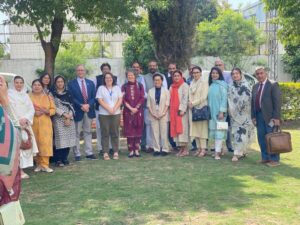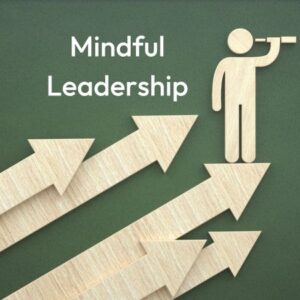In November 2020, I was asked by the International Mindfulness Teachers
Association (IMTA) to write about my own experiences with mindfulness and here is what I shared:
Could you please briefly tell us about your mindfulness meditation background and the population that you serve?
I got very sick toward the end of 2012. I contracted a virus on a business trip and, consequently, experienced chronic health issues. 5 years later, I was diagnosed with an autoimmune disorder. The practice of Mindfulness was initially introduced by my doctor In 2012. He told me about a book called Mindfulness for Beginners by Dr. Jon Kabat-Zinn. I was hesitant in the beginning. I tried practicing, and found myself running out of my own room after sitting for 2 minutes. I was running away from my own thoughts – racing, too many, and too much for me to handle at that time. Little by little, I practiced and read more books on Mindfulness. The 2 minutes became 5, then 7, then 20 and 30 minutes. One of the most impactful books for me was beautifully written by Thich Nhat Hanh called “ Peace In Every Step”. I was ill, anxious, depressed and suffered from insomnia.
In 2013, I took the 8-week Mindfulness Based-Stress Reduction (MBSR) program and in 2015, Mindful Self-Compassion ( MSC) came into my life. During my 15 year career in Education, the thing I enjoyed doing most was handling conflicts. Thus, when I retired, I pursued teacher training in both MSC and MBSR, as well as Conflict Resolution.
How does secular mindfulness look in the Philippines?
As I became an accredited mediator for both the private sector and the Office of Alternative Dispute Resolution under the Department of Justice In the Philippines, little did I know how much transformation Mindfulness-Based programs brought to the world of mediation and conflict resolution training. I currently serve on different departments of the Philippine government such as Natural Resources, Agrarian Reform, Overseas Employment Agency, Civil Service, Bureau of Corrections, Education, Grievance units of Navy, Armed Forces, Air Force and Marines, and other agencies. I continue to offer Mindfulness programs to different companies, schools and other mental health centers.
There is now more awareness of Mindfulness and the benefits of continued practice in the Philippines. More and more people are gaining a better and deeper understanding that it has everything to do with being human.
Please share with us ways in which you share Mindful Self-Compassion in conflict resolution.
As I continue my own practice of MSC, I see the value in bringing these practices to mediation training. MSC practices weave beautifully into Interest-Based Mediation and Values-Based Mediation. From meeting our inner critic, our difficult emotions, and our unmet needs with compassion and equanimity – these teachings of Dr. Kristin Neff and Dr. Christopher Germer flow seamlessly with practices in negotiations. The skills taught in Non-Violent Communication (NVC) by Dr. Marshall Rosenberg, supports early evaluation of a third party neutral, consensus building and the mediation process itself.
In the heart of conflict resolution is the relationship among equals with compassion for self and others. There is so much honoring of diversity, human needs and values. These are all shared by us, human beings. In the 3 components of MSC: Mindfulness, Common Humanity and Self-Kindness, it is my commitment to bring Loving Connected Presence (as beautifully taught in MSC) both to myself and to the ones I serve in each dispute process and the trainees in mediation.
Learn more about mindfulness here or register for our eight-week Mindful Self-Compassion online course here.




